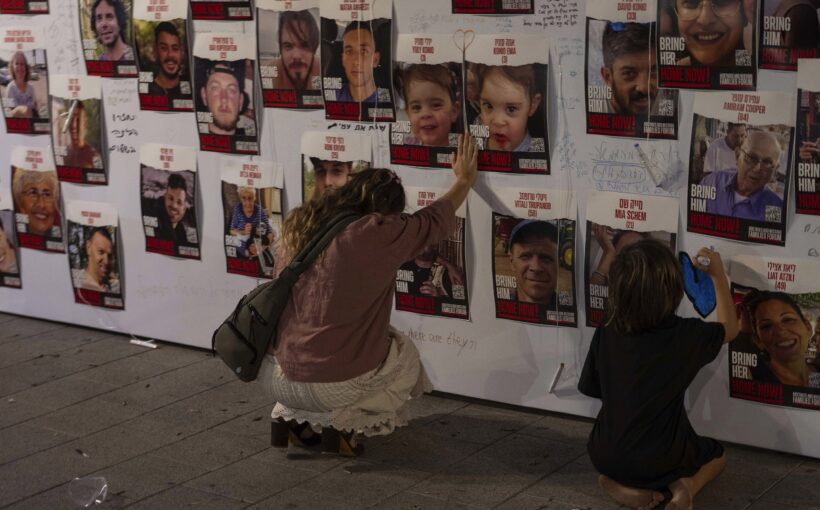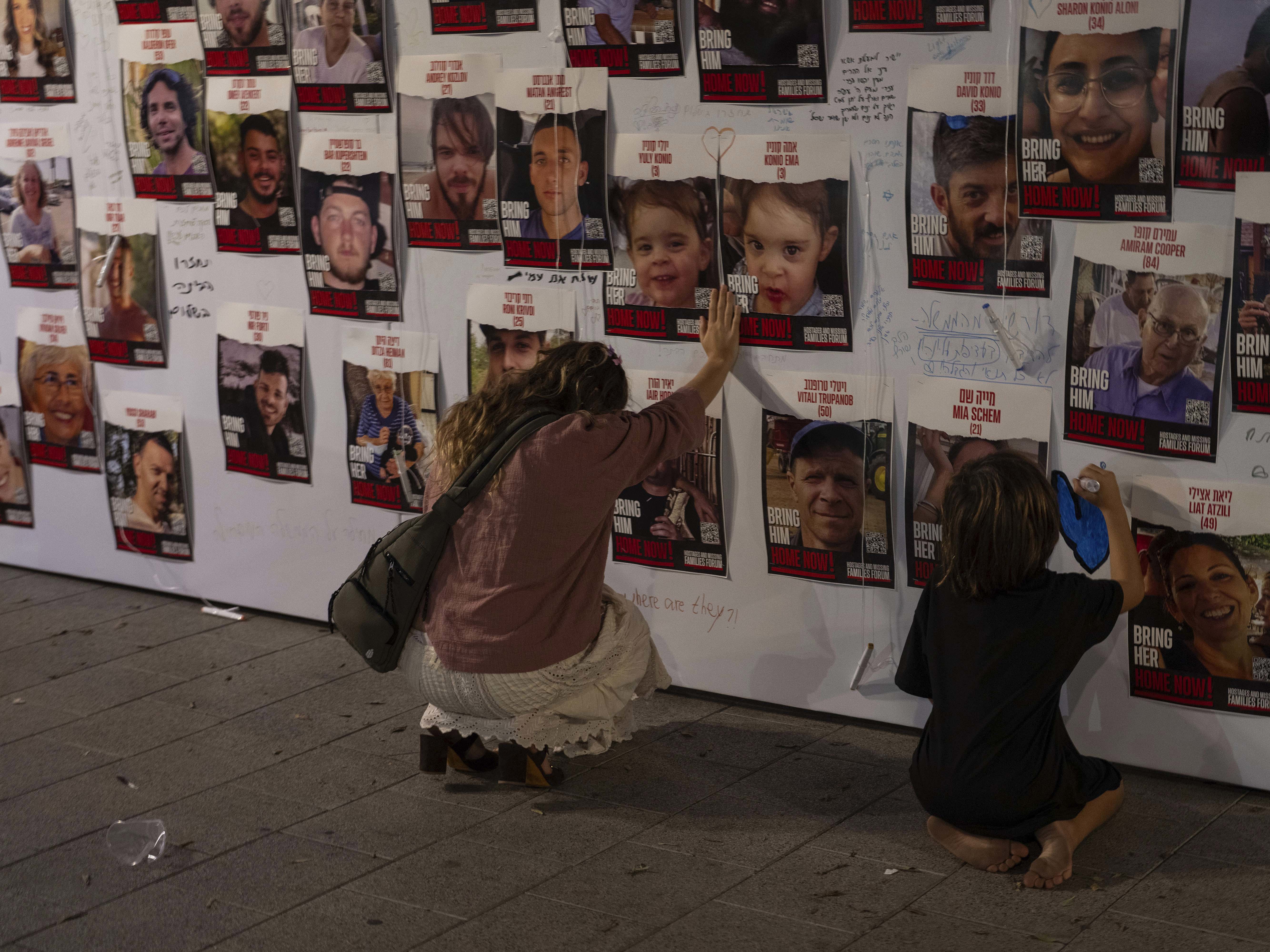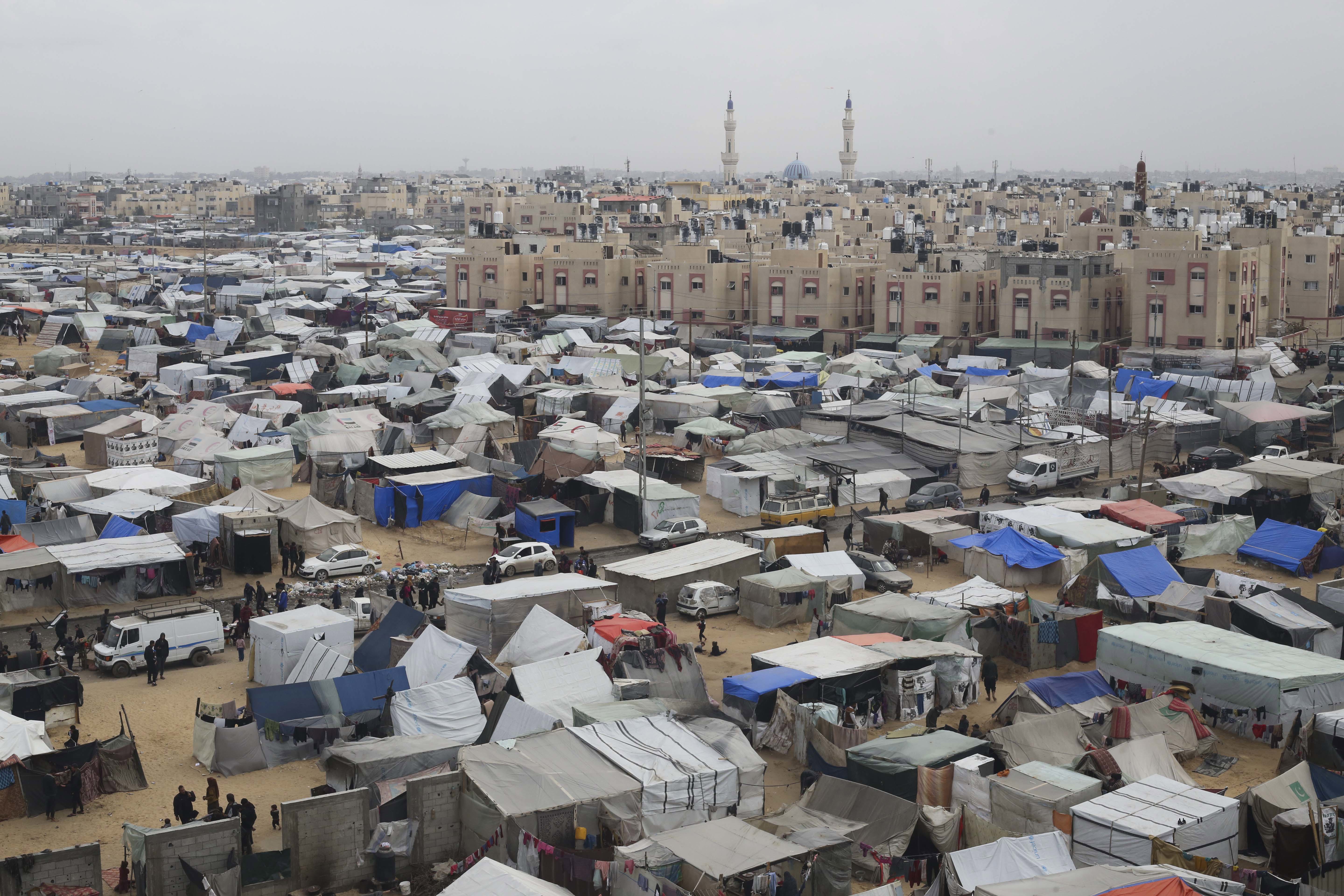Israel’s military said on Saturday it had recovered the body of a 47-year-old farmer who was held hostage in Gaza, while negotiators prepared for another round of talks on Sunday on brokering a cease-fire and securing the release of the remaining hostages, six months into the war.
Israel’s army said it found the body of Elad Katzir and believed he was killed in January by militants with Islamic Jihad, one of the groups that entered southern Israel in the Oct. 7 attack, killed more than 1,200 people and took about 250 hostages.
Katzir was abducted from Nir Oz, a border community that suffered some of the heaviest losses.
The discovery renewed pressure on Israel’s government for a deal to get the remaining hostages freed, and thousands gathered in Tel Aviv to call for a deal as well as early elections.
Hostages’ families have long feared time is running out.
At least 36 hostages have been confirmed dead.
About half of the original number have been released.
“He could have been saved if a deal had happened in time,” Katzir’s sister Carmit said in a statement.
“Our leadership is cowardly and driven by political considerations, and that is why (a deal) did not happen.”
Israelis are divided on the approach by Prime Minister Benjamin Netanyahu and his government.
A week ago, tens of thousands of Israelis thronged central Jerusalem in the largest anti-government protest since the war began.
Inside Gaza, the toll of Israel’s offensive is measured in tens of thousands of deaths and more than a million Palestinians displaced.
“We have arrived at a terrible milestone,” the UN humanitarian chief Martin Griffiths said in a statement marking six months and noting “the immediate prospect of a shameful man-made famine.”
He called the prospect of further escalation in Gaza “unconscionable.”
Cease-fire negotiations will resume on Sunday, according to an Egyptian official and Egypt’s state-owned Al Qahera TV.
The official spoke on condition of anonymity because they were not authorized to speak publicly about the talks.
US President Joe Biden has sent CIA Director Bill Burns to Egypt.
A Hamas delegation will arrive on Sunday to join the talks, the militant group said.
Hamas has insisted on linking a phased end to the war to any agreement releasing hostages.
It has said it will agree to release 40 as part of an initial six-week cease-fire deal that would include the release of Palestinian prisoners from Israeli jails.
Hamas also seeks the return of displaced people to devastated northern Gaza and more aid.
Israel has offered to allow 2,000 displaced Palestinians — mainly women, children and older people — to the north daily during a six-week cease-fire.
The talks come days after international condemnation of Israeli airstrikes that killed seven humanitarian workers with the World Central Kitchen charity.
The Israeli military described it as a tragic error.
Aid groups said the mistake is hardly an anomaly.
The UN says at least 190 aid workers were killed in Gaza through the end of March.
Some Israel allies now consider halting arms sales. Biden warned Netanyahu that future US support for the war depends on swift implementation of new steps to protect civilians and aid workers.
“We need security guarantees for us as humanitarians but also for the people we serve,” said Marika Guderian with the World Food Program, speaking inside Gaza.
The killings halted aid deliveries on a crucial new sea route for aid directly to Gaza as the UN and partners warn of “imminent famine” for 1.1 million people, or half the population.
The humanitarian group Oxfam says people in northern Gaza are surviving on an average of 245 calories a day.
In Jabaliya, a refugee camp near Gaza City, families scrounged in the rubble for mallow leaves to make a thin broth to break the daily Ramadan fast.
“Life has become miserable. They (daughters) tell me, ‘Father, you are feeding us mallow, mallow, mallow every day. We want to eat fish, chicken, canned food. We are craving eggs, or anything,’” said Wael Attar.
They shelter in a school as part of the 1.7 million people displaced in Gaza.
Israel has promised to open more border crossings into Gaza and increase the flow of aid.
The UN says that in March, 85 per cent of trucks with food aid were denied or impeded.
The death toll from the war in Gaza is 33,137, the territory’s Health Ministry said.
Its toll doesn’t differentiate between civilians and combatants, but it has said women and children make up the majority of the dead.
The ministry said the bodies of 46 Palestinians killed in Israeli airstrikes had been brought to hospitals in the past 24 hours — the lowest daily tally in months.
Israel blames Hamas for civilian deaths in Gaza, accusing it of operating in residential communities and public areas like hospitals.
The U N said it finally gained access to Gaza’s largest hospital, Shifa, following a dayslong Israeli raid and found what the head of the World Health Organization called “an empty shell,” with most buildings destroyed.
The WHO said numerous shallow graves, and many partially buried bodies, were found just outside the emergency department after the Israeli siege.
The destruction of Shifa and the main hospital in southern Gaza, Nasser, “has broken the backbone of the already ailing health system,” the WHO said.
Gaza’s southernmost city of Rafah now holds more than half of the territory’s 2.3 million people, and Israel’s vow to carry out a ground offensive there has caused weeks of dread and warnings even from Israel’s top ally, the United States.





